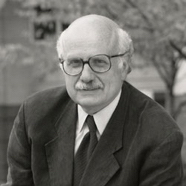A Watergate Lesson
 Next week marks the 50th anniversary of the “Saturday Night Massacre” – the firing of Special Watergate Prosecutor Archibald Cox in October 1973 that set off a firestorm and created a constitutional crisis.
Next week marks the 50th anniversary of the “Saturday Night Massacre” – the firing of Special Watergate Prosecutor Archibald Cox in October 1973 that set off a firestorm and created a constitutional crisis.
The Watergate scandals led to Richard Nixon’s resignation, the first and only resignation of a President, and spurred a series of historic reforms to address a broken political and governing system.
One reform was the creation of the presidential public financing system that Washington Post columnist E.J. Dionne Jr. described in 2006 as “that rare reform that accomplished exactly what it was supposed to achieve.”
The presidential public financing system was used by almost every Democratic and Republican presidential candidate for six elections and by every President elected from 1976 to 2004. Then-candidate Barack Obama opted out of the system in 2008.
The dramatic increase in the cost of presidential campaigns, along with too-low spending limits, insufficient public funds, and the refusal of Congress to modernize the system, left it useless.
Now, 50 years later, we are faced with another broken political and governing system.
We have a House of Representatives struggling for the second time this year to elect a Speaker and unable to take any action on urgent issues facing our country until it’s resolved.
We have House rules that, when combined with the Republican’s slim majority, allow a relatively few Members to hold the institution hostage to their whims, as they did with Speaker McCarthy.
We have a war in Ukraine caused by a Russian invasion and much needed U.S. military assistance is on hold because the House cannot act. And some House Republicans want to exercise minority power to block a bipartisan House majority from passing it.
We have a new war in the Middle East unleashed by the atrocities of Hamas in Israel. President Biden is seeking immediate military aid for Israel and the House cannot even meet to consider his proposal because of the Speaker stalemate.
We are headed for a government shutdown next month because unlike the Senate, House Republicans refuse to work with their Democratic counterparts to finance the government. House Republicans are themselves deeply divided with a minority demanding radical spending cuts that could never pass the Senate or be accepted by the White House.
Meanwhile in the Senate, we have one Senator holding up the promotions of hundreds of senior military officers, including several important postings in the Middle East, in an attempt to single handedly change Pentagon policy. Senator Tommy Tuberville (R-AL), taking advantage of an antiquated Senate rule, has been engaged in this despicable conduct for months, doing great damage to the military officers and their families, and to our national security.
Hanging over all of this is a deeply corrupt political system flooded with billions of dollars in influence-seeking money that makes the Watergate scandals look quaint by comparison.
It is a system dominated by influence-seeking billionaires, millionaires, bundlers, lobbyists, Super PACs, dark money nonprofits, and special-interest PACs. Most Members and candidates – except for the personally wealthy who can bankroll their own campaigns – are trapped in this corrupt system.
Two major Watergate-era reforms have been all but eviscerated by the Supreme Court’s Citizens United decision in 2010 and a toothless Federal Election Commission.
The candidate contribution limits have been made meaningless by single-candidate Super PACs, courtesy of the Court. Political associates of a candidate can sidestep the contribution limits by creating a single-candidate Super PAC that can rake in unlimited contributions to then spend on that single candidate.
Thus, I can give a candidate a maximum of $3,300 under the contribution limit, but I can evade that limit by also giving the single-candidate Super PAC $100,000, or $1 million – or more – to be spent to benefit that candidate.
The candidate knows who gave that Super PAC donation. For all practical purposes, this is the equivalent of an unlimited contribution to the candidate that can buy access to and influence over the candidate.
Disclosure laws which provide the means to hold campaign donors and the Members who receive the contributions accountable have been destroyed by dark money nonprofits that are used to launder unlimited, secret contributions to be spent to benefit the Members. The Members know the source of the secret contributions. Only the American people are kept in the dark.
Following Watergate, we had bipartisan leaders and bipartisan support for a wide range of political reforms, including sweeping campaign finance reforms. Today we are hard pressed to get support from any congressional Republicans for any real political reform.
If we are to break out of the dysfunction that permeates Washington and start dealing seriously with the urgent problems facing us today, the politics of our country must change.
The Watergate reforms are a reminder that things can change and improve. We need to keep up the fight until that happens again.
_______________
Fred’s Weekly Note appears on Thursdays in Wertheimer’s Political Report, a Democracy 21 newsletter. Read this week’s and other recent newsletters here. And, subscribe for free here and receive your copy each week via email.